Fighting corruption is an inherently complex challenge that requires transnational action. The stakes are high: Initiatives such as the Summit for Democracy and the United States Agency for International Development’s Combating Transnational Corruption Grand Challenge have underscored that multistakeholder efforts to combat corruption are a key pillar of advancing democratic renewal globally. Illicit financial flows (IFFs), defined as “illegal movements of money or capital from one country to another,” serve as a case in point. IFFs around the world facilitate corruption, deepen inequality, reduce economic security, and exacerbate environmental degradation. In low- and middle-income countries especially (but not exclusively), the consequences are particularly profound since IFFs lead to a “loss of what are often desperately needed resources to fund public initiatives or critical investments.”
Of course, no economy can tackle this problem alone: The globalized nature of financial systems means that solutions to IFFs require extensive cooperation across country lines and jurisdictions. In this piece, we examine key challenges associated with and recommendations to address IFFs from the production and trade of gold from Venezuela, which exemplifies many of the challenges associated with IFFs broadly.
Background
Venezuela’s gold production and trade illustrate many of the risks and harms associated with IFFs. Illegal mining, particularly of gold, is driving environmental damage, human rights abuses, and security threats for Venezuela and the region. Illegal gold mining regionally appears to be on the rise, fueled in part by high gold prices and limited political will and resources to tackle the problem. For example, in Colombia, an estimated 69% of its gold is mined illegally, and the illegal gold trade provides an estimated US$2.4 billion in revenue annually.
In 2011, then-President Hugo Chávez nationalized the mining industry, aiming to centralize state control of the sector. Following the country’s economic collapse, gold became a vital revenue source for the Maduro government. International sanctions on exports coupled with declining oil production have left the regime with few sources of income.
Compañía General de Minería de Venezuela (Minerven), the state gold company, does relatively little mining itself. Instead, experts note the government sources gold from a variety of small-scale mines across the country, including those controlled by illegal groups. Groups engaged in illegal mining include Venezuelan criminal syndicates, known as sindicatos, and Colombian illegal armed groups, notably dissidents from the FARC and the ELN. The government has also leveraged proceeds from the illicit gold sector to maintain the loyalty of the military, which charges protection payments to illegal mine operators, and of high-level political officials. This has happened in a context of “no democracy and no independence or balance of powers,” as well as a complex system of international corruption, leaving limited avenues for redress or change.
Gold is exported out of the country directly by the Banco Central de Venezuela (BCV), notably to countries such as Turkey, Iran, Uganda, Libya, and the UAE, or by illegal groups in the form of contraband. Illegal mining is believed to have supported the Maduro regime’s resilience following the U.S. Treasury’s 2019 decision to sanction Minerven.
Research by the Leveraging Transparency to Reduce Corruption (LTRC) initiative and many others,[1] together with expert insights emerging from a moderated panel discussion and subsequent workshop, helps to unpack these thorny challenges and potential paths forward.
Challenges and Recommendations
An uptick in gold production, the large number of actors involved in gold smuggling, and difficulties associated with tracing illicit gold flows have all contributed to a crisis with limited chances to even engage in its resolution. This includes the limited availability of trade and customs data (which could help anti-corruption advocates better diagnose the scope and origins of resource flows) and the complex, transnational nature of the problem.
Acknowledging those challenges, below are ten recommendations, informed by the expert discussions referenced above, outlining potential pathways to address IFFs through research, training, education, and engagement strategies. While these opportunities were identified in the context of illicit gold flows from Venezuela, many of these areas are relevant to combating IFFs more broadly:
- Address and engage key regional actors: Many experts underscored the critical role of stemming enablers of IFFs at the supply chain and regional trade levels. While laundering networks are undoubtedly global, gold from dispersed flows departing Venezuela seem to be laundered mainly within the Latin America and Caribbean (LAC) region via key regional transit hubs, particularly Colombia, the Dominican Republic, Brazil, Suriname, Guyana, and Panama.
- Support capacity building for local journalists: Supporting local journalists with training and funding to investigate potential IFFs and other corruption issues are important ways to advance transparency, which can help generate pressure for reform among anti-corruption champions. For example, journalists could be trained in how to use transaction-level data to investigate illicit flows, with the outputs disseminated through international outlets.
- Leverage incentives across the board: Since engagement is not expected with the regime in Venezuela, it is important to find other ways to incentivize better governance of natural resources. Several experts highlighted that greater collaboration among local and international organizations, engagement with indigenous communities, and coordination with the private sector and all actors along the value chain is essential.
- Think holistically: To fully address the challenge, conversations around combating IFFs must go beyond the point of extraction to discuss all players along the value chain and look at the different forms in which gold is traded (doré, scrap, jewelry, concentrates) with their respective vulnerabilities.
- Bridge implementation gaps: There are often significant gaps between due diligence standards and the completion or implementation of due diligence. New research could help us better understand how these bottlenecks happen and how to address them.
- Build awareness and capacity in stakeholders regarding due diligence: To complement the above, it is imperative to educate buyers, exporters, and traders on how to conduct their due diligence more effectively with suppliers. Several experts argued that governments around the world should be encouraged to put more pressure on exporters and trade centers to comply with robust due diligence standards.
- Examine free trade zones: As the OECD notes, Free Trade Zones can “serve as enabling mechanisms for both gold laundering and money laundering linked with gold,” and thus their role in facilitating gold flows and related financial crimes warrants greater attention.
- Improve data: Several experts have noted that trade and customs data are often inconsistent, inaccurate, or insufficient, and thus there is space for international institutions to help improve this data.
- Amplify awareness of environmental degradation: Organizations in Venezuela such as SOS Orinoco have been documenting the environmental degradation and human rights abuses caused by illegal mining in Venezuela. Several experts underscored that there is insufficient coverage of these issues both domestically and globally and noted that the international community (including global environmental protection organizations) are often reluctant to work in Venezuela.
- Look beyond gold: While flows from Venezuela’s gold sector are a critical area of reform, some experts noted that other resources, including critical or transition minerals, are being used to diversify criminal portfolios. More research is needed to understand the scope and scale of this problem.
The recommendations above provide a few notional suggestions of what can be done to combat IFFs. Moving forward, it is critical to build from these ideas by identifying who is best positioned to pursue them, and how to do this in a way that is conscious of risks to individuals or collectives. All of this must be done while managing the politics around actions needed, particularly in enabling countries.
The United States’ anti-corruption strategy, as well as the Summit for Democracy and its emphasis on commitments to strengthen democracy, seeks to protect human rights and fight corruption. These types of commitments can open an important window of opportunity for a larger transnational effort focused on countries that are the source of IFFs, as well as other countries where gold and money from its trade is laundered.
LTRC will continue engaging with international, subnational, and local organizations to better understand and identify opportunities to combat the challenge of IFFs and corruption more broadly through research, engagement strategies, and/or specific initiatives. We welcome interested organizations to connect with us by emailing [email protected].
Thanks to Ivana Lefebvre d’Argencé and Zoe Hatsios for their fact-checking and copy-editing support. The authors also thank Luca Maiotti for his thoughtful comments on this piece.
Footnotes:
[1] See e.g. highlights from a report by the OECD on “Gold flows from Venezuela: supporting due diligence on the production and trade of gold” and OECD’s due diligence guidance for conflict-affected and high-risk areas include recommendations for mitigating risks along the supply chain.
The Brookings Institution is committed to quality, independence, and impact.
We are supported by a diverse array of funders. In line with our values and policies, each Brookings publication represents the sole views of its author(s).
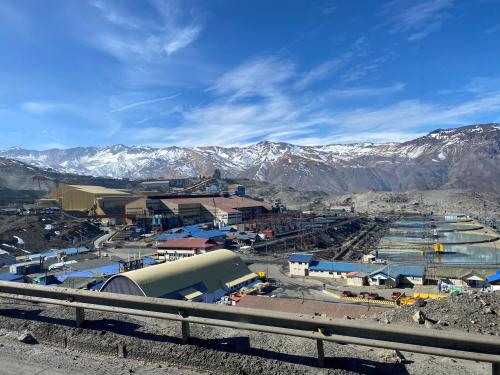
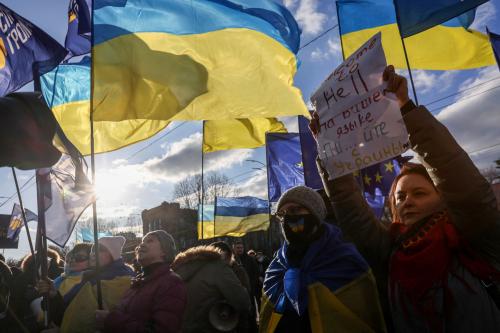
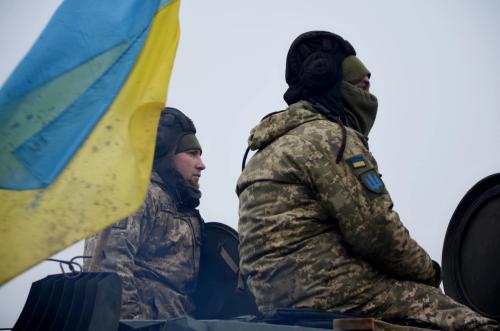

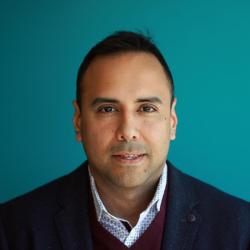


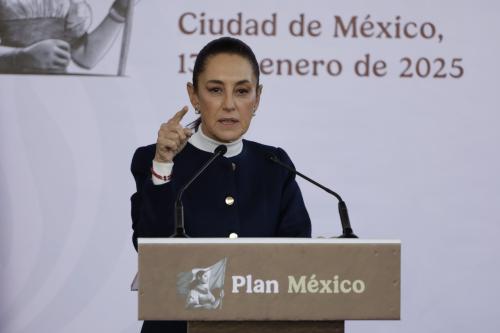
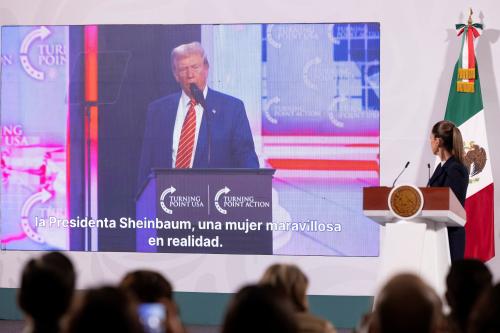
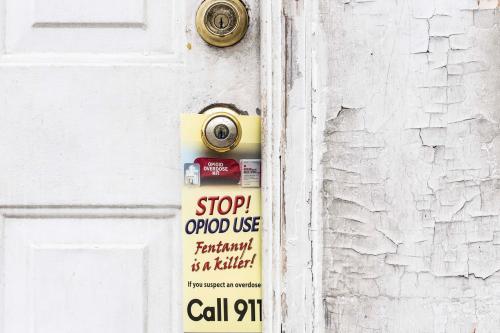
Commentary
Venezuela’s gold: 10 ways to address illicit financial flows from the mineral trade
December 1, 2022